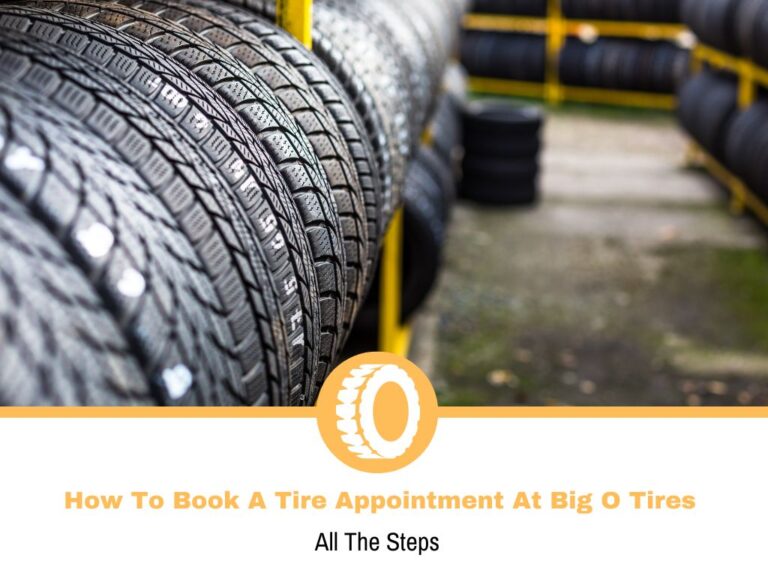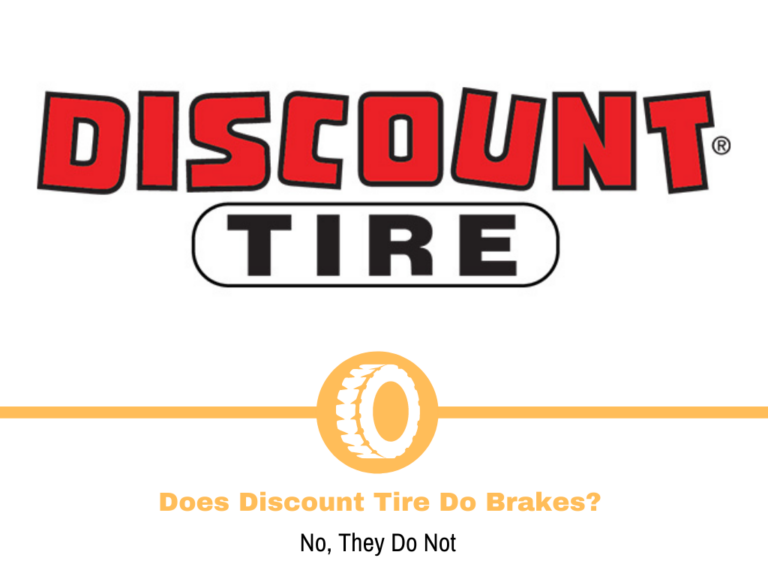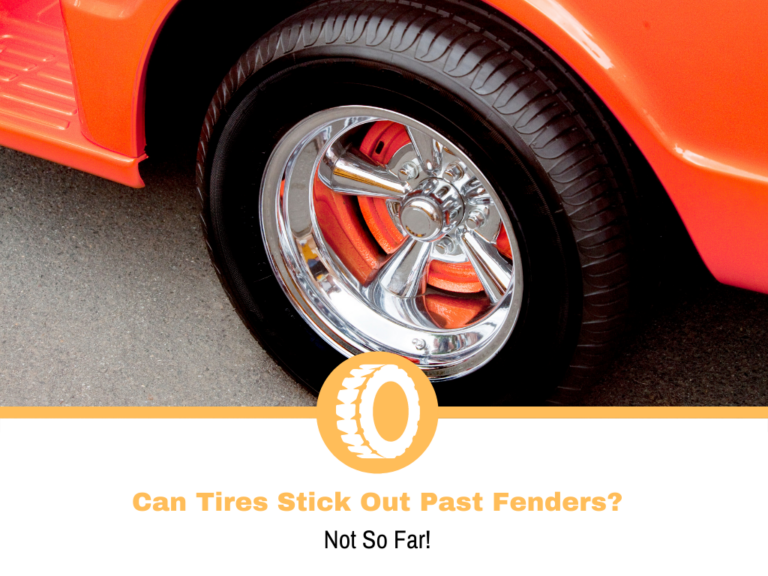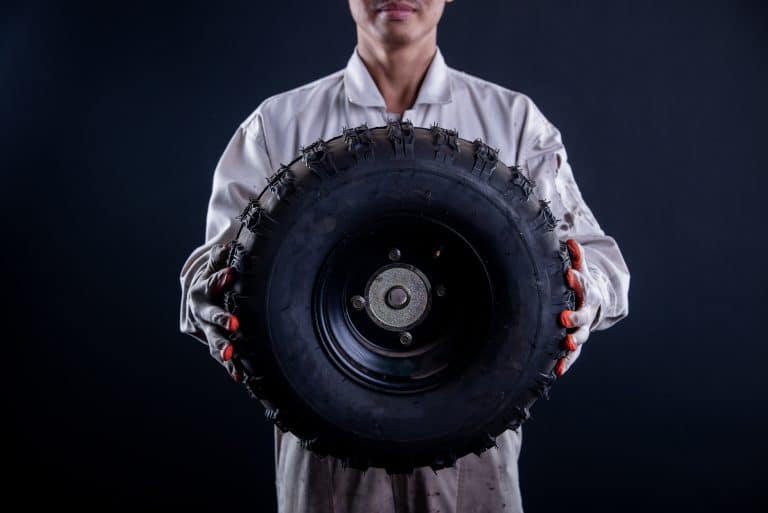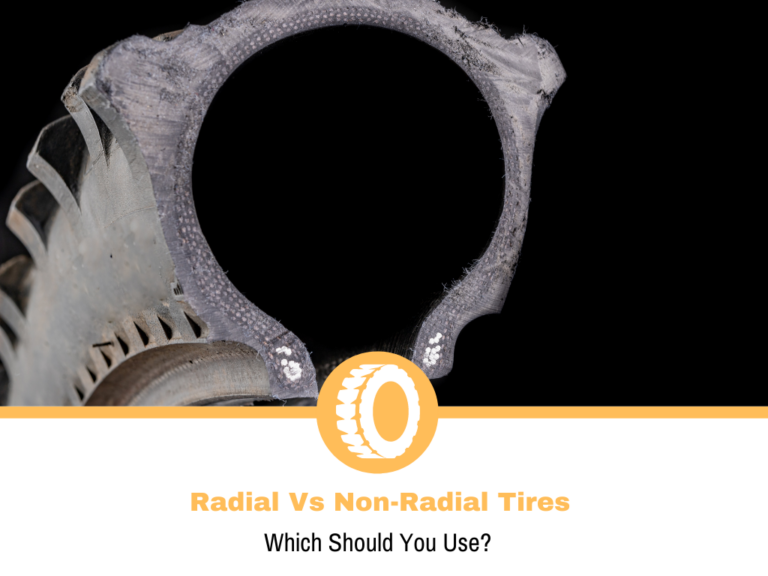How Long Do Semi-Truck Tires Last?
Tires are widely recognized as one of the most expensive parts of commercial trucking fleet maintenance. Well-maintained tires are also essential for ensuring your safety while driving. Understanding the lifespan of their semi-truck trailer tires is one of the ways managers can cut the costs associated with unexpected tire repair and replacement.
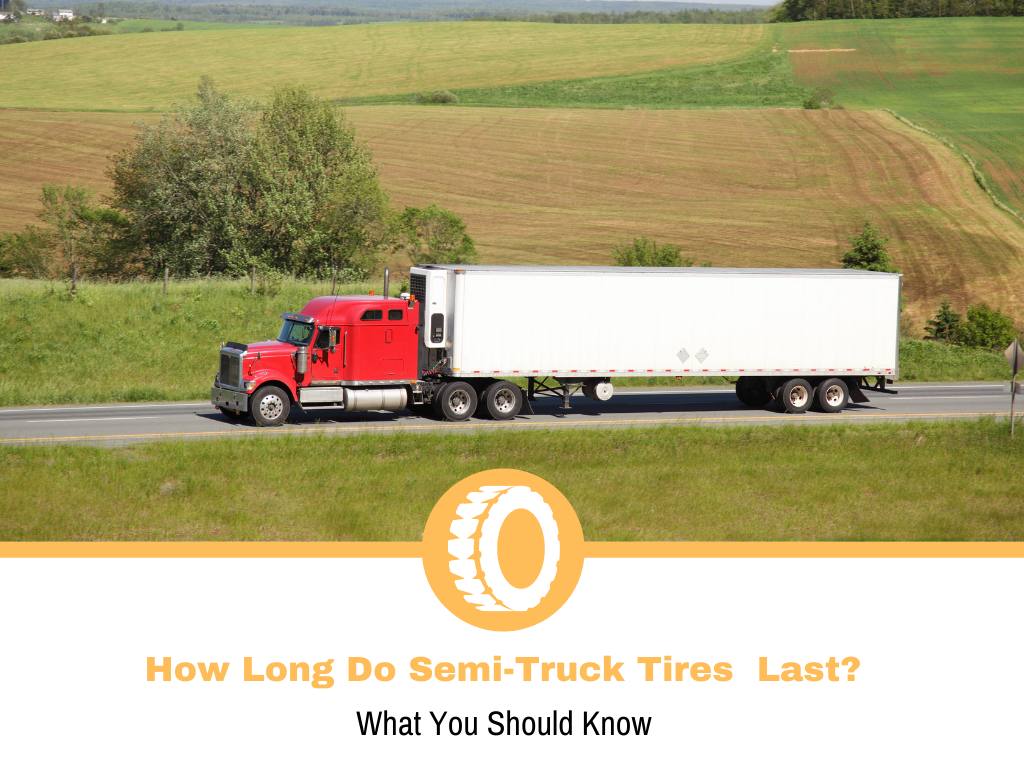
‘How long do semi-tire trucks last’ is a common question we hear from drivers who want to ensure that their semi-truck tires stay in good shape and gets the most out of miles long.
Semi-truck tires have an average lifespan of three to six years if they are kept in good condition. That said, tires should never be left on a truck for more than six years. Experts also advise replacing your tires in pairs because uneven treads can cause your truck to ride rougher. Several factors will influence how long you can go without changing your tires.
What Factors Can Affect Semi-Truck Tires Lifespan?
When it comes to semi-truck trailer tires, there is no one-size-fits-all solution. Tires can develop air bubbles or cracks that compromise their structural integrity. They can also develop small holes in them, resulting in slow leaks that can lead to blowouts and fatal accidents.
Mileage is one of the factors that can affect the lifespan of semi-truck tires. Tires that are more exposed to possible rock drilling in the vicinity of building sites or quarries should be replaced sooner than those which are generally used on highways. These roads tend to exacerbate the wear and tear of tires, especially in semi-trailers.
The type of tires you use for your fleet will also influence how frequently you must replace them. Extreme drive on the ground, the weight of loads, hard braking, and acceleration are the things that affect the lifespan of semi-truck tires too.
The best way for fleet managers to expect maintenance or replacement of semi-truck tires is to comprehend the yearly mileage of their fleets and miles per 1/32nd of rolling depth. Fortunately, some tools can be used by managers with little manual work.
What Are Semi-Truck Tires Made Of?
Semi-Truck tires are incredibly complicated, with up to seven different materials layers in many of them. Sulfur and zinc oxide chemicals help to improve traction and rolling strength. Heavy-duty tires consist of numerous layers from a synthetic rubber liner to a polyester cove such as:
Inner Liner
The inner liner replaces the tube inside the tires, which consists of a rubber layer with enhanced sealing properties. The butyl, synthetic rubber, or polyisoprene is the general composition of the rubber. This liner is where the air inside is kept.
Carcass Ply
This layer has cords running radially from bead to bead. The carcass is the tire’s framework, its most significant component, and the area where internal air pressure, weight, and shock are absorbed.
Bead
This connects the tire to the rim. The area is composed of several components, including the bead wire, core, rubber, and flipper. In general, the rim is slightly tightened so that if the air pressure suddenly drops while driving, the tire will not become dislodged from the rim. The bead wraps around the cord’s end and secures the tire to the metal rim.
Sidewall
Located between the tire’s shoulder and bead, this protects the carcass while also increasing ride-ability due to its flexible extension and contraction movements. This section of the tire also carries a lot of information, such as the tire type, standard, structure, pattern, who manufactured it, and the brand name.
Belts
These are strong reinforcement layers placed between the tread and carcass in bias tires. Their functions are similar to those of the breaker but more effective at tightening the carcass.
Cap Ply
The cap ply prevents tires from overheating and aids in tire shape retention. It is often made of polyester.
Tread
The tread is made up of a thick layer of rubber that makes direct contact with the road surface. To protect the carcass and belt, the tread is very resistant to fracture and shock.
The Importance of Professional Tire Maintenance
It is vital to keep your tires properly maintained, have adequate air levels, and are in good condition for your safety and the safety of other drivers. Tire blowouts can result in fatal accidents, and the most typical reasons include damaged tires, incorrectly inflated tires, and tires that are worn out and too old. It is recommended that your tires be serviced regularly to ensure their safety on the road. Checking tire pressure, inspecting tires for gouges or cracks, and repairing or replacing as needed are all part of the process. Even with routine maintenance and inspection, determining when a tire is unsafe can be challenging.
Simple Routine Activities That Can Extend Your Semi-Truck Tires’ Life
As part of the tire maintenance procedure, these activities not only will keep you and your trailer safe but also extends the tire’s lifespan in the long haul. This includes timely tire rotation at least every 10,000 miles and conduction wheel balancing and alignment should there be tire irregularities.
Schedule tire rotation every 10,000 miles
Since semi-truck tires experience a lot of stress compared to regular passenger car tires, their rotation schedule is earlier than the latter. This process aids in achieving even wear across all of your tires.
Wheel balance and alignment
This process is often overlooked on trucks mainly due to the equipment for alignment and balancing is different from regular ones. However, this process is equally important as it brings resolution to difficulties such as uneven tire wear or tire that tugs to one side or the other.
Conclusion
Semi-truck tires can last up to six years if properly maintained. They are designed with more durable materials due to the nature of how they were being used. Though they are built tough for more demanding tasks, proper tire care and timely maintenance must still be observed since their exposure to stresses will likely wear them out quickly. Additionally, adequate knowledge of their composition will help drivers understand how to care for them.
